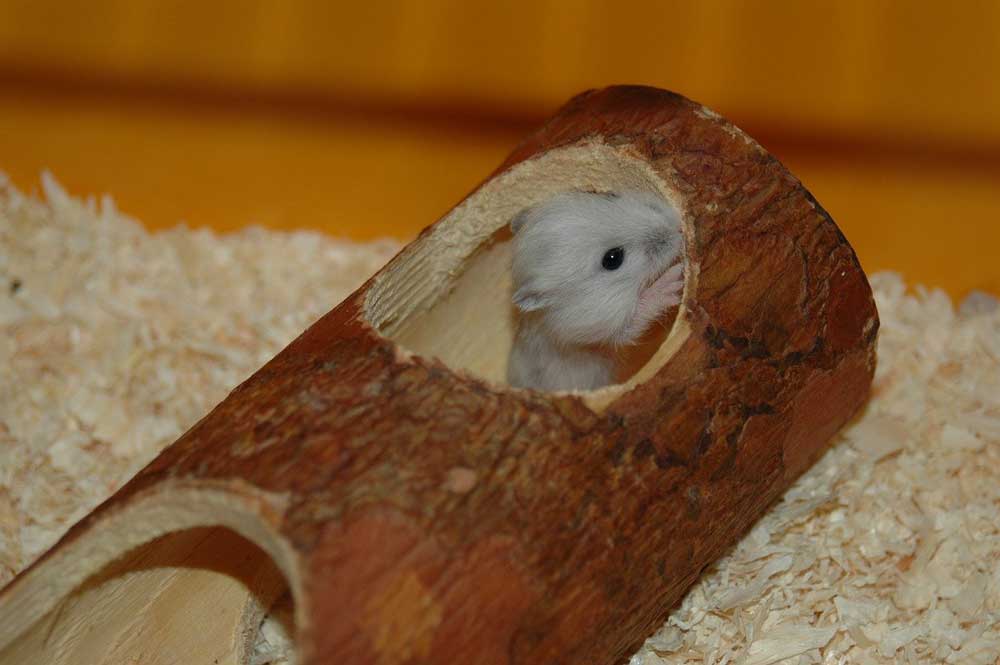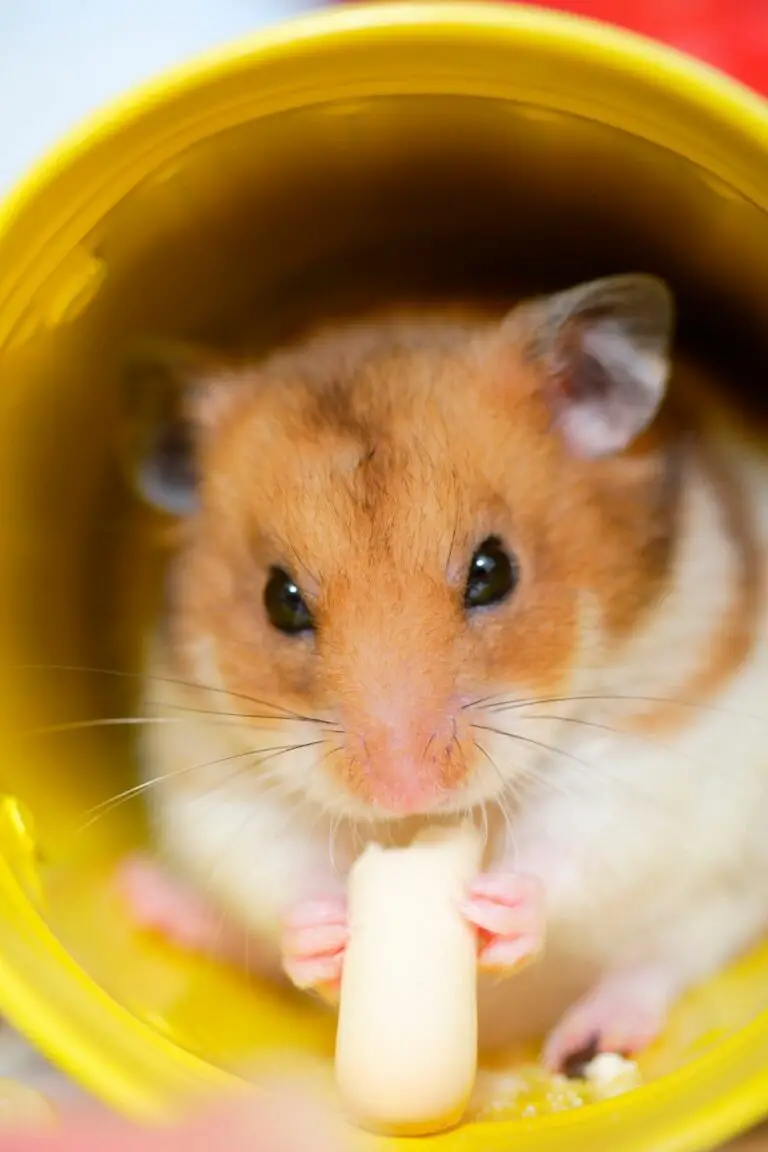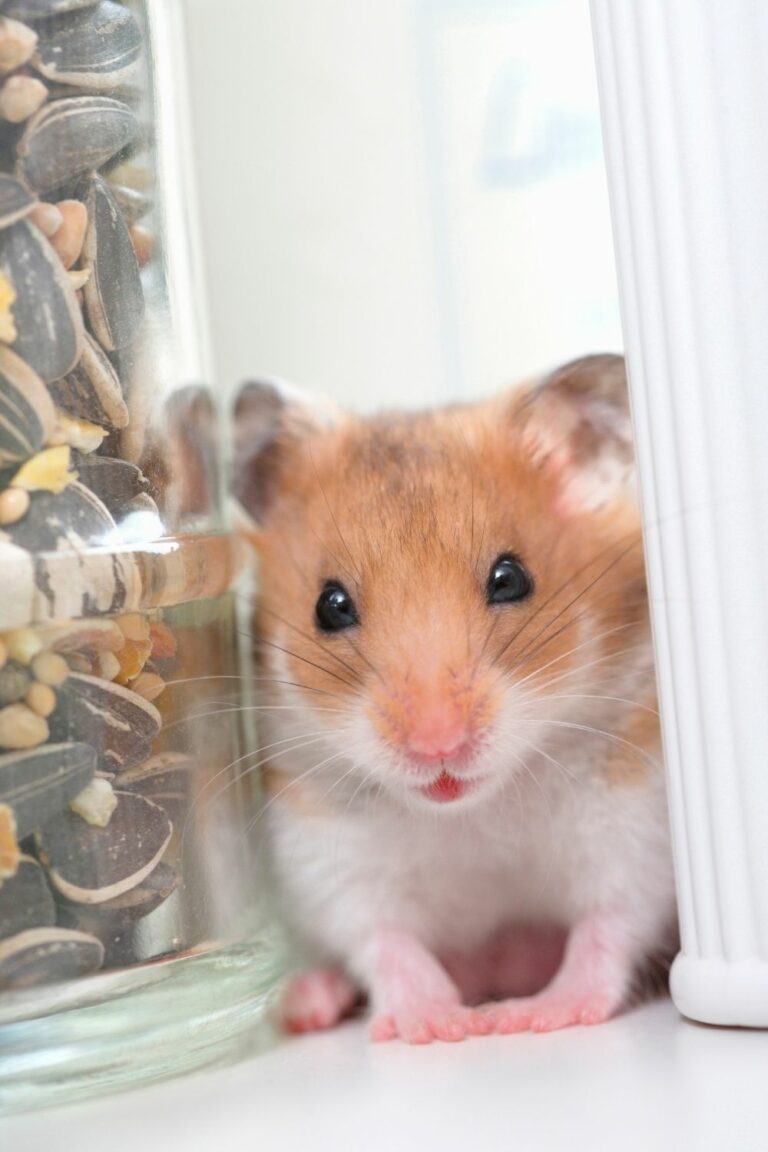Why Does My Hamster Hide?
Hamsters are fascinating pets that have interesting characteristics which can be quite entertaining to their owners. One of those characteristics is hiding out of sight.
They could be well visible in their cage now then the next minute you will not even be able to see them. This is not a cause for alarm as it’s generally normal hamster behavior.
If you are wondering why they do it, keep reading to find out more.
Why does my hamster hide?
Hamsters will hide and seek cover due to various reasons. It could be because they are in new environments, they saw other bigger pets like dogs, due to noise, aggressive cagemates, careless handling especially by small children, cold living conditions, illness, or just out of their instinctual nature to burrow. They will either hide in the cage corners, stay close to the wall, dig under their bedding, or spend time in hideys and tunnels.
Reasons behind your hamster hiding
Hamsters hide because of reasons such as:
Instinct
Hamsters naturally like to burrow, whether they are out in the wild or domesticated. They will dig tunnels underground to make separate hideys for purposes like sleeping, hiding food, or toileting.
Most times, if your hamster seems to be hiding, they are not even hiding. They are burrowing out of a natural need to create for themselves a secure place to sleep, hide their food, or pee.
New pet
New hamsters are likely to hide a lot of the time too. This is because they are not yet used to their new environments.
They may only come out in the open for food then go back into hiding. Normally, it doesn’t take long and your hamster will get used to you in a few days.
However, by the time they get used to you, they may hide away and even run from you. This is normal.
Other pets
Hamsters are small in size and this makes them very easy prey animals. They have predators out in the wild like snakes, owls, and coyotes.
Having predators ready to catch them anytime makes them alert at all times. If they spot other pets who are larger than them like dogs and cats, they may get scared thinking they are predators.
This fear will drive them into hiding.
Noise
Hamsters may be small pets but they have very powerful hearing capabilities. Their ears are very sensitive which makes the slightest of noises very powerful for them.
Noise irritates them and stresses them out. This will make them go into hiding.
Aggressive cagemates
Some hamster species are very friendly and they will cohabitate without any issues. Others however cannot live together peacefully.
The dominant hamster may bully the less dominant one by being aggressive towards them. This will likely force them into hiding even to one corner of their cage.
Careless handling
If your pet is handled carelessly, they may get anxious about being handled again and hide whenever you try to handle them.
They may have been held or carried roughly. Maybe children dropped them and they got hurt.
These could be reasons why your pet will hide whenever you want to touch them because they are anxious about what may happen to them.
Cold environments
A hamster’s cage should be at least above 20°C. This is because hamsters tend to hibernate and anything lower than that may prompt them to hibernate.
Hamsters are used to living under warm temperatures so if the temperatures go low they will burrow down and go into a deep sleep until temperatures are at a higher temperature.
Illness
A sick pet will be easy to notice if they are showing signs of illness. If your pet is unwell, they will be lethargic making them move less.
They may also hide away most of the time. This will be because they are in pain and do not want to be bothered.
What to do if your hamster is hiding?
If your hamster is hiding away most of the time, it can be frustrating for you as a pet owner. You may wonder what you are doing wrong or even be at a loss as to how you should bond with them.
The following measures can be helpful to deal with a hamster that is mostly hiding:
Give them time
If they are new and still trying to adjust to their environments, give them time. Be patient with them as they get used to their new home’s scents and to you too.
It won’t take long and when they are confident in their cage they will stop hiding.
Keep them away from other pets
If your hamster spots your other pets or feels their scent nearby, they will begin hiding thinking they are predators looking for them. To stop this, ensure your hamster’s cage is located away from your other pets.
Limit noise
Lower music volumes when your pet is around and put their cage in areas that are away from noise. You can have the cage in a quiet corner of a room in your house.
Separate aggressive hamsters
Syrian hamsters can get quite aggressive towards fellow hamster species or a different species. If you notice one pet being aggressive to the other to the point of one hiding away, separate them.
Hamster fights can be fatal and all measures should be taken to prevent them. Put them in separate cages and different rooms to prevent them from getting further stressed by still sensing each other’s presence.
Increase the temperatures
If the room temperatures are low for your pet, they will hide away into hibernation. They will then remain in that state until the temperatures are high enough for them.
Raising the temperatures to at least 20°C will wake your pet. Always make sure that the temperatures do not get too low.
Seek a vet
If your pet is always hiding yet you cannot seem to tell what the matter is, consult a vet. They will be able to examine your pet and know what exactly could be the matter.
Relax
Sometimes all you have to do is take off your worry boots and relax. This is because hiding is a normal part of a hamster’s nature and they will do it many times with no big reason behind it.
Depending on your pet’s nature, they will either hide a lot or very little. If your pet naturally hides more, just let them be, and bond with them the times they are out and ready to mingle.
Conclusion
Hamsters have an instinct to burrow and hide. They will do it most of the time and it’s usually normal.
Other reasons that make your pet hide from you are if they are new, handled carelessly, see other bigger pets, live in a noisy area, have aggressive cagemates, are sick, or hibernating.
Always take a keen observation of your pet to notice what the matter could be and make sure that they are living in safe conducive environments.
- Can Hamsters Travel in a Car? (Read This First)
- Why Do Hamsters Put Food in Their Cheeks? (Explained!)
- Can Hamsters Live Outside? (What You Should Know)
- Can Hamsters Learn Their Name? (Know The Details)
- Can Hamsters Eat Ice Cream? (Read This First)







